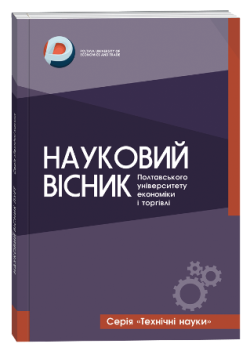DEVELOPMENT AND TECHNOLOGY OF THE PRODUCTION OF BIOLOGICALLY ACTIVE FOOD SUPPLEMENTS FROM NATURAL COMPONENTS
Abstract
The article presents the results of research on the development of recipes and technology for obtaining biologically active food additives with potential adaptogenic, antioxidant, hepatoprotective activity. Natural mineral-organic substrates (mummies) and plant raw materials as a source of natural biologically active substances were used as raw materials. The urgency of the study is due to the need for more efficient use of natural biologically active compounds, as well as expanding the range of domestic biologically active additives with natural ingredients and import substitution. Standard research methods were used in the work. On the basis of literature data and research results, promising raw materials containing biologically active substances were selected. Safety and potential properties have been assessed. The content of biologically active substances in raw materials and in the experimental sample of biologically active additives was experimentally determined. Compatibility test was performed. Five recipes with different combinations of natural components in the composition are scientifically substantiated. Physicochemical and technological properties of the mixture of dry extracts, which determine the choice of technology and quality of the finished product, have been studied. The technology of obtaining an encapsulated form of biologically active additive based on dry extracts of medicinal plants and mummies is described. The advantage of the technology is the use of natural components approved for use, and special processing methods that preserve the maximum Biologically active substances. The method of moisture-activated granulation is used. Ethyl alcohol at a concentration of 20 % was used as a moisturizing agent. Lactose and AEROSIL® 200 Pharma (Evonik Industries, Germany) were used as excipients to obtain the granulate. Based on the obtained results, the composition of capsules with a dosage of 700 mg was developed. The developed biological additive can be produced in the food and pharmaceutical industries.
References
2. Bogan-Brown K., Yasmeen N., Yusrah I. Synbiotic Supplementation Improves Response to Iron Supplementation in Female Athletes during Training. 2022. Journal of dietary supplements. Vol. 19. P. 366–380.
3. Marleen A. The balance between food and dietary supplements in the general population. 2019. Proceedings of The Nutrition Society. Vol. 1. P. 1-13.
4. Valavanidis A. Dietary Supplements: Beneficial to Human Health of Just Peace of Mind? A Critical Review on the Issue of Benefit/Risk of Dietary Supplements. 2016. Pharmakeftiki. Vol. 28(2). P. 37–56.
5. Machado-Alba J. Vitamin, micronutrients and supplement prescribing patterns in a group of ambulatory colombian patients. 2020. Revista Médicas UIS. P. 456–476.
6. Abdel-Salam D. Epidemiological Aspects of Dietary Supplement use among Saudi Medical Students: A Crosssectional Study. 2020. Open Publ Health J. Vol. 5. P. 46–65.


